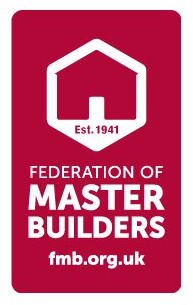Builders and homeowners set to reap benefits from FMB retrofit scheme

The Federation of Master Builders (FMB) has entered into a partnership with Digital Buildings that aims to provide streamlined access to carbon credits and quantified social impact from retrofit projects.
The partnership will give builders access to Retrogreen, which Digital Buildings has designed to make it easier to connect builders with projects eligible for carbon credits, while also providing access for homeowners to mortgages with reduced rates on green home improvements.
Retrogreen also speeds up the process for homeowners and builders alike by generating a detailed online specification of retrofit projects, which removes the need for builders to visit sites in order to prepare quotes.
Digital Buildings co-founder and CEO Colin Calder has welcomed the partnership with the FMB, as it provides an easy-to-use platform for all members of the FMB.
“More than 70 per cent of homes with a mortgage are now subject to UN Net Zero Banking Alliance obligations. To deliver on these commitments, lenders will have to incentivise borrowers to perform 350,000 domestic retrofits a year,” Colin Calder said.
“Retrogreen is the only service that automatically creates a digital replica of a home and provides a legally binding framework in which a homeowner can create their ideal Home Improvement Plan, secure finance through a financial adviser, obtain competitive quotes from Trustmark registered contractors and benefit from all the consumer protections available from Digital Buildings being a licensed Trustmark Scheme Provider. In addition, registered contractors can submit claims for carbon credits using Retrogreen.”
FMB chief executive Brian Berry said the new partnership not only makes the process of managing carbon credits easier, but Retrogreen also provides access to pre-surveyed leads to builders working in retrofit and home improvements.
“The UK has a legal requirement to achieve Net Zero by 2050, which means a huge amount of work needs to be done to improve the energy efficiency and decarbonisation of UK houses,” Brian Berry explained.
“To paint a picture of what that means, more than 10 million homes in the UK have an Energy Performance Certificate rated D or lower, which is the largest band by number of properties. There are currently eight million lofts that need insulating, five million uninsulated cavity walls and 20 million uninsulated floors that need upgrading if we are to reach these targets.
“Insulation, double glazing and new heating technologies are all in demand, and Retrogreen will help connect our builders with the projects that require these trades quickly and efficiently, with the added bonus of improving returns both financially and in terms of social impact.”
Under the carbon credits scheme, every metric tonne of carbon that is reduced or removed from a building project or home improvement work (commonly referred to as retrofit) represents one carbon credit. Carbon credits can be purchased to support decarbonisation of housing stock by improving thermal efficiency or reducing the carbon intensity of a heating source.
Digital Buildings worked with TrustMark to develop Retrogreen, and is now a licensed TrustMark scheme provider. The carbon credit scheme is operated through HACT Housing Action Limited and PNZ Carbon Limited.




















